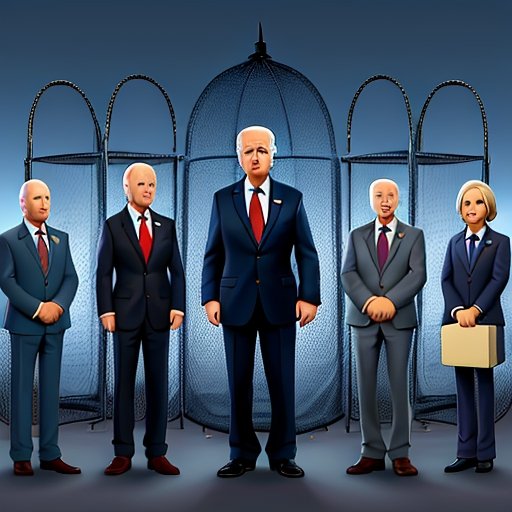The recent events surrounding Hurricane Helene and FEMA’s preparedness—or lack thereof—paint a pretty bleak picture of what happens when an administration gets its priorities all wrong. We’ve got DHS Secretary Alejandro Mayorkas out here admitting that FEMA, the agency designed to save us in times of disaster, doesn’t have enough money to make it through the year. That’s not just a financial oversight; that’s a colossal failure in planning, especially when you’re talking about something as predictable as hurricane season.
Let’s break this down. FEMA’s job is disaster response, right? Their whole purpose is to jump in when things go sideways, like after a Category 4 hurricane wipes out entire communities. But here’s the kicker: FEMA’s already cash-strapped, and now we’re hearing that a significant chunk of their budget—hundreds of millions of dollars—has been redirected to support migrant resettlement efforts. This isn’t a small misstep; it’s a critical misallocation of resources, and it’s coming from the top.
FEMA’s Budget Crisis: A Closer Look
Back in April, FEMA announced $640 million in funding. Sounds good at first glance, but then you dig into the numbers, and $300 million of that went to directly support immigrants settling in the U.S. The other $340 million? Grants to cities for the same purpose. So, while FEMA was busy supporting the administration’s immigration agenda, it was leaving its primary mission—disaster relief—woefully underfunded. And now, after Hurricane Helene left a wake of destruction, FEMA’s out of cash, and we’re not through hurricane season.
FEMA Budget Allocation
This isn’t some hypothetical threat. Helene hammered the southeast, causing billions in damage, widespread food shortages, and tragically, more than 100 deaths. We’ve still got people missing, infrastructure in shambles, and no real plan to handle the next big storm because the money is running dry. Mayorkas himself admitted that FEMA is using what little money it has left to meet immediate needs, but that’s not going to cut it when another hurricane inevitably hits.
Prioritizing American Security
And this didn’t come out of nowhere. The immigration crisis has exploded under the Biden-Harris administration, with millions of illegal immigrants entering the country. DHS, which oversees FEMA, has been overwhelmed. In many ways, FEMA has been pulled into a role that’s far removed from disaster response, tasked with propping up the administration’s immigration policies rather than doing what it was designed to do: respond to emergencies like hurricanes. This is not just a case of a few dollars being misdirected; this is FEMA being gutted to support a completely different agenda.
Illegal immigration is a huge issue, no doubt about it. The numbers are staggering—some experts are saying over 12 million migrants have crossed the border under this administration. But should FEMA, an agency that’s supposed to be on the front lines of disaster response, be footing the bill? Especially when hurricanes are on the horizon?
One cannot help but think back to Donald Trump’s administration that unabashedly prioritized American security and preparedness over playing pattycake with international policies. Take, for instance, the decisive travel restrictions implemented in response to global health crises, aimed squarely at preserving American safety and showcasing real proactive governance.
Conservatism holds a deep-seated belief in prioritizing government spending to truly protect its citizens. Redirecting FEMA’s funds into disaster preparedness rather than an endlessly expanding immigration policy aligns with conservative principles that advocate for responsibilities specific to each governmental body.
The Debate on Additional Funding
And now we’ve got President Biden talking about going to Congress for more funding. Great. But here’s the problem: emergency preparedness isn’t something you throw money at after the fact. It’s not like you can rewind the clock and prepare for a hurricane that already hit. FEMA needed that money in advance, not after the damage is done.
As Congress debates whether to scramble additional funding, let’s remember that emergency preparedness isn’t something you slap together overnight. If FEMA’s job is disaster management, it cannot do that half-heartedly by financing tasks it wasn’t designed to. If we ask it to battle immigration challenges, we’re asking for chaos on two fronts.
“In true conservative fashion—we understand priorities, folks! And those priorities dictate a FEMA dedicated fully to disaster response, not doubling as an immigration agency. Because at the end of the day, stretching its resources like a too-small rubber band risks snapping when we need it most.”
It’s high time the Biden-Harris administration recalibrates and reestablishes a laser focus on domestic safety, preparing today for the storms of tomorrow. After all, as the wise say—a chain is only as strong as its weakest link.
Conclusion
If you ask me, this whole thing comes down to priorities. FEMA’s job is to keep Americans safe during natural disasters, but that responsibility seems to have taken a backseat to immigration policy. Now, with FEMA stretched thin and another hurricane potentially on the way, it’s Americans who will pay the price—literally and figuratively.
Congress might throw FEMA some extra cash, but that doesn’t solve the root of the problem: we’re asking an agency designed for disaster relief to handle a massive immigration crisis, and it’s failing at both. It’s time for some serious reflection on where our priorities are and who we expect to save the day when disaster strikes. Because if we’re not careful, the next storm could be worse, and FEMA will be even less prepared.






